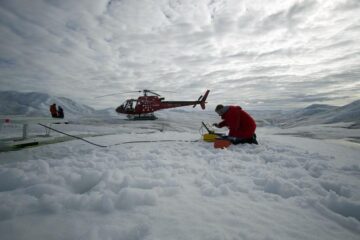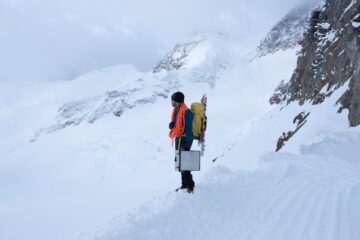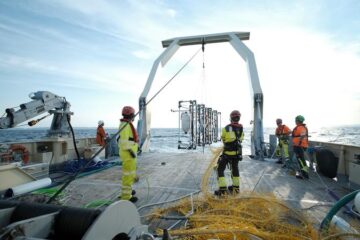Earth Sciences
Earth Sciences (also referred to as Geosciences), which deals with basic issues surrounding our planet, plays a vital role in the area of energy and raw materials supply.
Earth Sciences comprises subjects such as geology, geography, geological informatics, paleontology, mineralogy, petrography, crystallography, geophysics, geodesy, glaciology, cartography, photogrammetry, meteorology and seismology, early-warning systems, earthquake research and polar research.

Enormous Ice Loss from Greenland Glacier
Ground-based measuring devices and aircraft radar operated in the far northeast of Greenland show how much ice the 79° N-Glacier is losing. According to measurements conducted by the Alfred Wegener…

New yttrium-hydrogen compounds discovered
Researchers at the University of Bayreuth have made a significant scientific breakthrough by discovering new yttrium-hydrogen compounds having serious implications for the research on high-pressure superconductivity. High-pressure superconductivity refers to…

It won’t be as cold as it used to be
SLF climatologist Christoph Marty joins us for an interview to explain why it can snow even in mild winters as well as the difference between the winters of 2022/23 and…

Research on a rope
SLF physicist Lars Mewes is investigating snow crystals’ direction of growth and analysing snow profiles on the Jungfraufirn Glacier. His work is part of a collaboration with other institutions, which…

The snow has to be CT scanned
Having returned from Antarctica, SLF technician Matthias Jaggi talks about new insights into snowpack structure, future work to refine climate models using the samples collected, a personal career highlight –…

Boulder detection for monopile foundations
…and submarine cables in the Baltic Sea for Baltic Power Offshore Wind Farm. The Fraunhofer Institute for Wind Energy Systems IWES has conducted a boulder detection campaign in the Baltic…